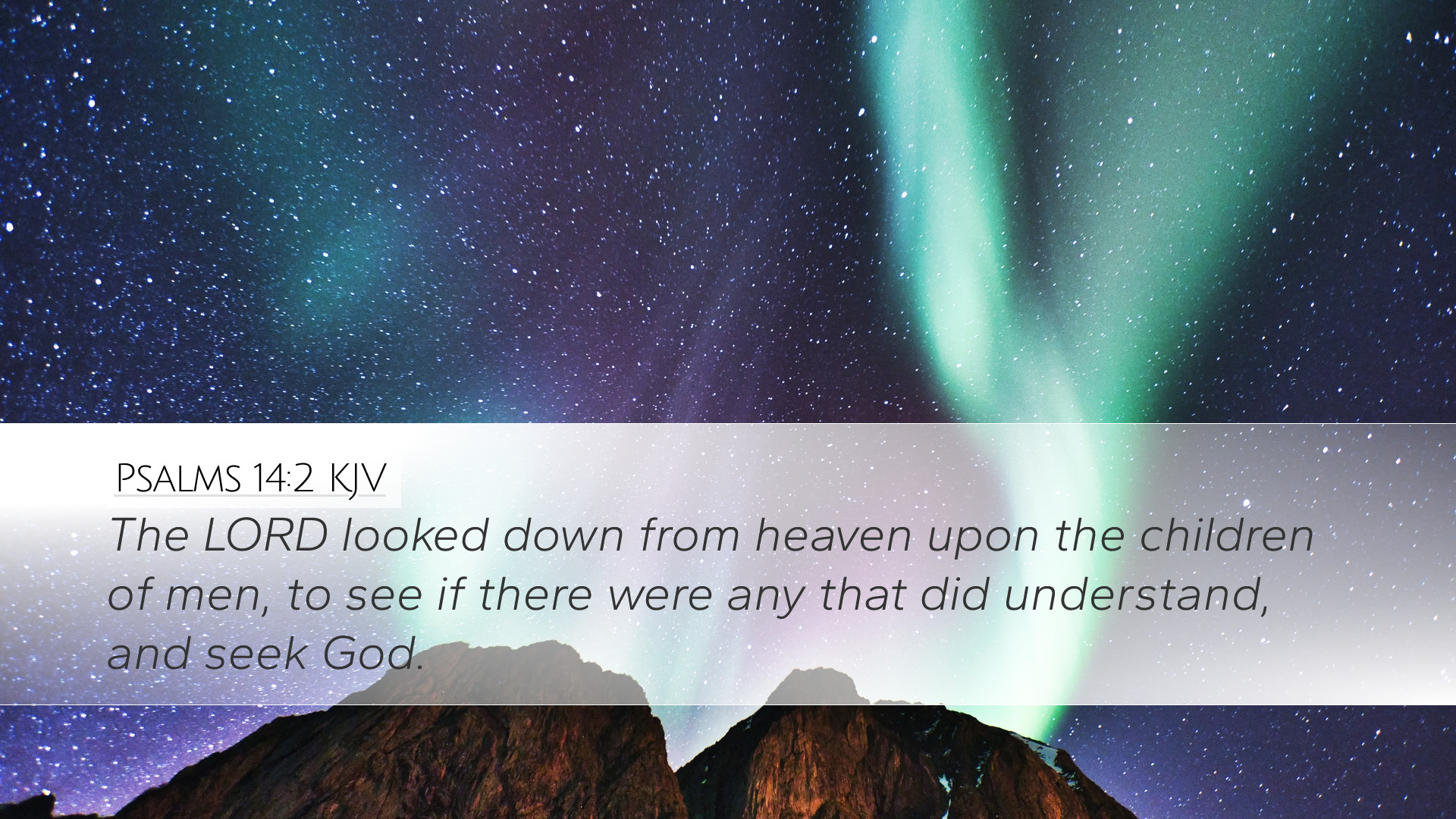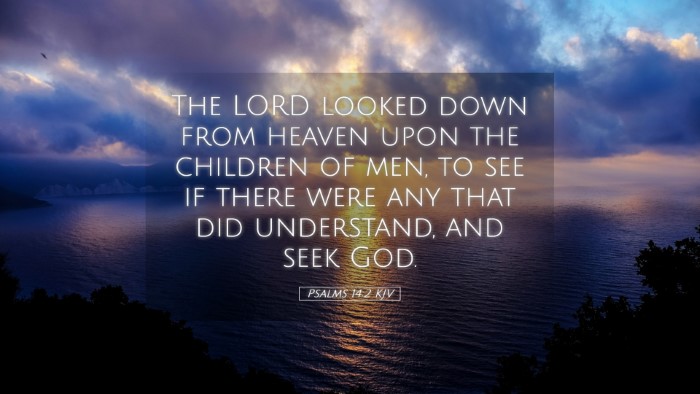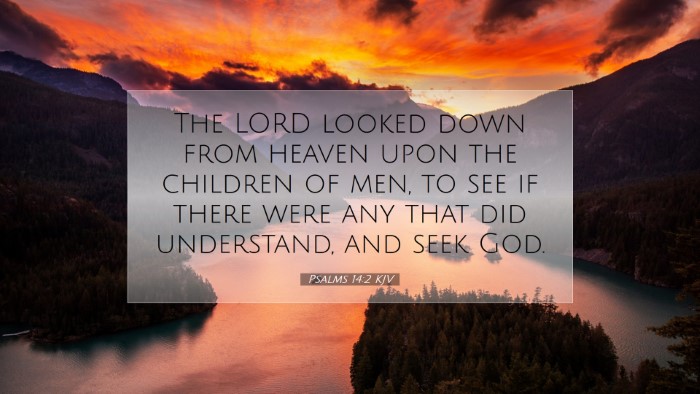Psalms 14:2 (KJV): "The LORD looked down from heaven upon the children of men, to see if there were any that did understand, and seek God."
This verse from Psalms captures the divine perspective on humanity's spiritual condition. The examination by God of mankind is significant in understanding both His nature and the state of humanity. Below is a detailed commentary on this profound verse, drawing insights from renowned theologians and scholars.
Divine Observation
Matthew Henry notes that this verse emphasizes God's omniscience and His active interest in human affairs. He reflects on the idea that God is not distant; rather, He observes humanity with a purpose. Henry states, "The Lord's looking down signifies His perfect view of all things, not only in a global context but within every individual heart." This observation is not merely passive; it serves to reveal a divine intention to seek understanding and fellowship with His creation.
Understanding and Seeking God
Albert Barnes elucidates that the focus of God's searching gaze is on those who not only comprehend His nature but actively seek Him. He comments on the distinction between mere acknowledgment of God and a genuine pursuit of a relationship with Him. Barnes indicates that the term "understand" connotes a deeper knowledge that leads to spiritual seeking, emphasizing that true understanding of God must engender a desire to know Him more intimately.
Adam Clarke deepens this exploration by suggesting that the notion of 'seeking God' implies a longing that transcends routine religious behavior. He writes, "To seek God is to endeavor to know His will and to align one's life with His purposes, which is a challenge often overlooked in mere religious practice." Clarke asserts that the passage urges believers to introspect and assess their spiritual pursuits.
The Condition of Humanity
Both Henry and Barnes contextualize this verse within the broader theme of Psalm 14, which describes humanity's folly in rejecting God. Henry notes that this search for understanding underscores the spiritual apathy prevalent among men; most live as though God does not exist. This aligns with the initial verses of the Psalm, which identifies the fool who denies God's reality.
Barnes comments on the incredulity surrounding human rebellion against God’s authority: "Though God searches for those who seek Him, the reality is that many have turned away. This highlights the fallen nature of humanity, which is often blind to spiritual truths." Thus, the search for righteousness and understanding is not a widespread pursuit among the masses.
The Implications of Divine Inquiry
This divine inquiry prompts several theological reflections about God's role and human responsibility. Henry points out, "God's looking down is both a comfort and a challenge; it reassures the faithful that they are seen and valued while simultaneously inviting the unfaithful to reconsider their spiritual journey." This duality can serve as motivation for believers to actively engage in seeking God’s will and promoting a deeper connection within their communities.
Clarke urges readers to reflect on their personal walk with God, suggesting that acknowledging God's gaze upon us can lead to transformation. He contends, "If we are aware that God scrutinizes our hearts, it should incite a desire to purge any apathy or disinterest towards spirituality." This personal application calls for self-examination and an earnest pursuit of understanding God more profoundly.
Corporate and Individual Responsibility
The implications of seeking God extend to both individual and corporate responsibilities within the faith community. Barnes asserts that, "It is not enough for individuals to seek God personally; communities, churches, and nations must acknowledge their need for Divine guidance and understanding." This communal aspect stresses that corporate repentance and a collective pursuit of God is paramount for spiritual renewal.
Henry echoes this sentiment, highlighting that "When leaders and congregations genuinely seek God, they become vessels of hope and restoration in a world that is often devoid of divine truth." Churches are called to be examples of seekers, demonstrating active faith and engaged spirituality.
Conclusion
In summary, Psalms 14:2 serves as a powerful reminder of God's active engagement with humanity and serves as a call to deeper understanding and genuine seeking of God. Through the eyes of Matthew Henry, Albert Barnes, and Adam Clarke, we glean insights into the nature of God's inquiry, the conditions of humanity, and our collective responsibility as believers. As we engage with this text, may we reflect on our spiritual pursuits and align our hearts with the divine call to seek and understand God fervently.
Reflection Questions
- In what ways can we cultivate a deeper understanding of God in our communities?
- How does awareness of God's scrutiny impact our daily decision-making?
- What steps can individuals take to transition from passive acknowledgment of God to a proactive seeking of His presence?
- How can church leaders model the pursuit of God effectively to their congregations?


